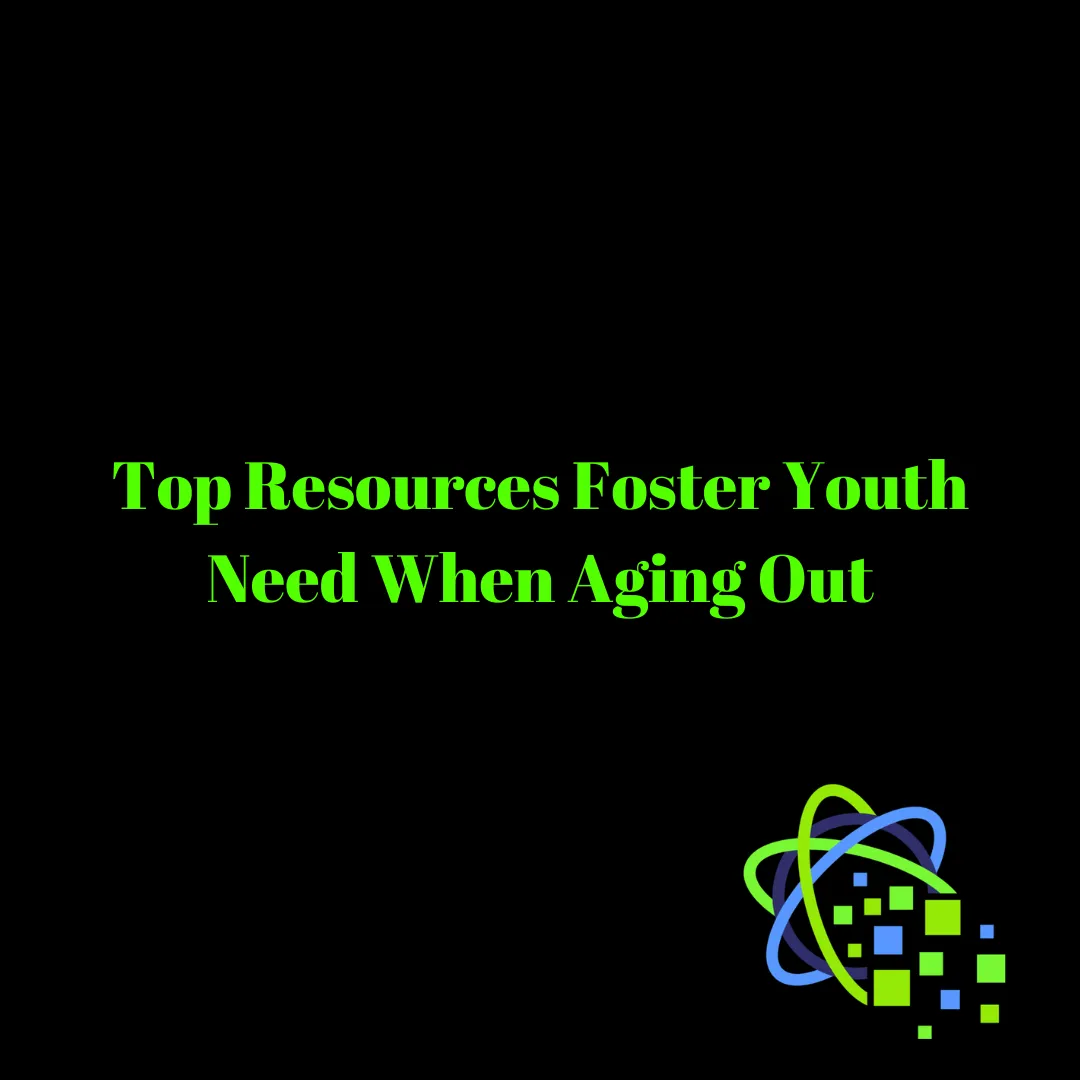
Top Resources Foster Youth Need When Aging Out
"Transitioning out of foster care can be overwhelming, but with access to the right resources and support, every foster youth can successfully navigate the journey of adulthood."
Aging out of the foster care system can be a daunting experience for many youth. As they transition into adulthood, they may face a range of challenges, such as finding employment, securing housing, and accessing healthcare. To help them navigate these difficulties, there are a number of resources available to support them. Here are some of the top resources that foster youth should be aware of when aging out of the welfare system:
Education and Training Opportunities: Access to education and training is critical to the long-term success of foster youth. Many organizations offer scholarships and grants for foster youth to pursue higher education, vocational training, or career development programs. Some of these resources include the Chafee Foster Care Independence Program, the Fostering Opportunities Scholarship, and the Casey Family Scholars Program.
Employment Assistance: Finding employment can be challenging for foster youth who lack a network of support or experience in the job market. Organizations such as the YouthBuild program, Job Corps, and America's Promise Job Driven Grants provide job training and employment support to help youth find and maintain employment.
Housing Support: Housing instability is a common issue among former foster youth. Many organizations provide assistance with finding affordable housing, including the Department of Housing and Urban Development (HUD), Section 8 housing vouchers, and the National Youth in Transition Database.
Mental Health Services: Mental health issues can be prevalent among foster youth, and it's important that they have access to mental health services as they transition into adulthood. Organizations such as the Substance Abuse and Mental Health Services Administration (SAMHSA), National Alliance on Mental Illness (NAMI), and the Trevor Project offer counseling, therapy, and other support services to foster youth.
Healthcare Access: Many foster youth lack access to healthcare, which can lead to health issues that go untreated. Organizations such as the Children's Health Insurance Program (CHIP) and Medicaid offer healthcare coverage for foster youth who have aged out of the system.
Support Networks: Foster youth need a support network of caring adults who can offer guidance and support as they navigate adulthood. Organizations such as Foster Kids United, Covenant House, and the National Foster Care Youth and Alumni Policy Council provide mentoring and support to former foster youth.
Aging out of the foster care system can be a challenging experience, but with the right resources and support, foster youth can successfully transition into adulthood. It's important for foster youth to be aware of the resources available to them and to take advantage of them as they navigate this important transition.

Top Resources Foster Youth Need When Aging Out
"Transitioning out of foster care can be overwhelming, but with access to the right resources and support, every foster youth can successfully navigate the journey of adulthood."
Aging out of the foster care system can be a daunting experience for many youth. As they transition into adulthood, they may face a range of challenges, such as finding employment, securing housing, and accessing healthcare. To help them navigate these difficulties, there are a number of resources available to support them. Here are some of the top resources that foster youth should be aware of when aging out of the welfare system:
Education and Training Opportunities: Access to education and training is critical to the long-term success of foster youth. Many organizations offer scholarships and grants for foster youth to pursue higher education, vocational training, or career development programs. Some of these resources include the Chafee Foster Care Independence Program, the Fostering Opportunities Scholarship, and the Casey Family Scholars Program.
Employment Assistance: Finding employment can be challenging for foster youth who lack a network of support or experience in the job market. Organizations such as the YouthBuild program, Job Corps, and America's Promise Job Driven Grants provide job training and employment support to help youth find and maintain employment.
Housing Support: Housing instability is a common issue among former foster youth. Many organizations provide assistance with finding affordable housing, including the Department of Housing and Urban Development (HUD), Section 8 housing vouchers, and the National Youth in Transition Database.
Mental Health Services: Mental health issues can be prevalent among foster youth, and it's important that they have access to mental health services as they transition into adulthood. Organizations such as the Substance Abuse and Mental Health Services Administration (SAMHSA), National Alliance on Mental Illness (NAMI), and the Trevor Project offer counseling, therapy, and other support services to foster youth.
Healthcare Access: Many foster youth lack access to healthcare, which can lead to health issues that go untreated. Organizations such as the Children's Health Insurance Program (CHIP) and Medicaid offer healthcare coverage for foster youth who have aged out of the system.
Support Networks: Foster youth need a support network of caring adults who can offer guidance and support as they navigate adulthood. Organizations such as Foster Kids United, Covenant House, and the National Foster Care Youth and Alumni Policy Council provide mentoring and support to former foster youth.
Aging out of the foster care system can be a challenging experience, but with the right resources and support, foster youth can successfully transition into adulthood. It's important for foster youth to be aware of the resources available to them and to take advantage of them as they navigate this important transition.

Top Resources Foster Youth Need When Aging Out
"Transitioning out of foster care can be overwhelming, but with access to the right resources and support, every foster youth can successfully navigate the journey of adulthood."
Aging out of the foster care system can be a daunting experience for many youth. As they transition into adulthood, they may face a range of challenges, such as finding employment, securing housing, and accessing healthcare. To help them navigate these difficulties, there are a number of resources available to support them. Here are some of the top resources that foster youth should be aware of when aging out of the welfare system:
Education and Training Opportunities: Access to education and training is critical to the long-term success of foster youth. Many organizations offer scholarships and grants for foster youth to pursue higher education, vocational training, or career development programs. Some of these resources include the Chafee Foster Care Independence Program, the Fostering Opportunities Scholarship, and the Casey Family Scholars Program.
Employment Assistance: Finding employment can be challenging for foster youth who lack a network of support or experience in the job market. Organizations such as the YouthBuild program, Job Corps, and America's Promise Job Driven Grants provide job training and employment support to help youth find and maintain employment.
Housing Support: Housing instability is a common issue among former foster youth. Many organizations provide assistance with finding affordable housing, including the Department of Housing and Urban Development (HUD), Section 8 housing vouchers, and the National Youth in Transition Database.
Mental Health Services: Mental health issues can be prevalent among foster youth, and it's important that they have access to mental health services as they transition into adulthood. Organizations such as the Substance Abuse and Mental Health Services Administration (SAMHSA), National Alliance on Mental Illness (NAMI), and the Trevor Project offer counseling, therapy, and other support services to foster youth.
Healthcare Access: Many foster youth lack access to healthcare, which can lead to health issues that go untreated. Organizations such as the Children's Health Insurance Program (CHIP) and Medicaid offer healthcare coverage for foster youth who have aged out of the system.
Support Networks: Foster youth need a support network of caring adults who can offer guidance and support as they navigate adulthood. Organizations such as Foster Kids United, Covenant House, and the National Foster Care Youth and Alumni Policy Council provide mentoring and support to former foster youth.
Aging out of the foster care system can be a challenging experience, but with the right resources and support, foster youth can successfully transition into adulthood. It's important for foster youth to be aware of the resources available to them and to take advantage of them as they navigate this important transition.
